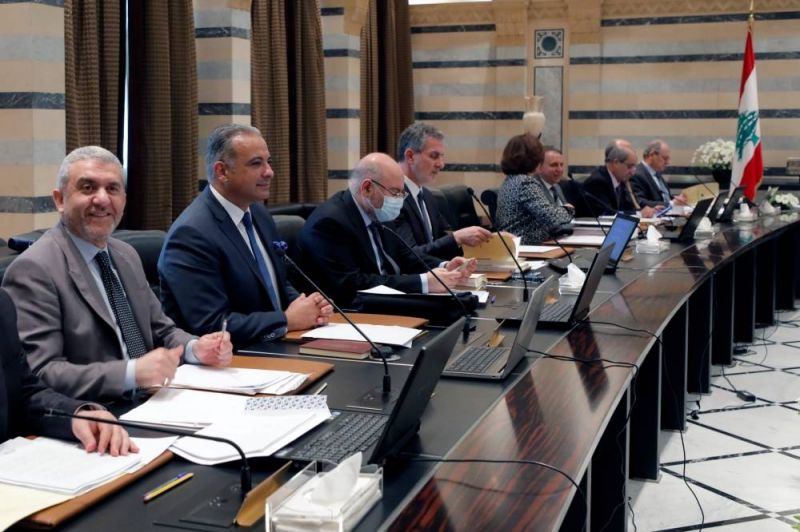
Cabinet meets at the Grand Serail on Wednesday. (Credit: Marc Fayad)
Want to get the Morning Brief by email? Click here to sign up.
Cabinet yesterday took the first steps towards implementing Energy Minister Walid Fayad’s plan to rescue Lebanon’s electricity sector. The plan entails building two new power plants, one in Deir Ammar and another in Zahrani. Both towns already play host to existing power plants that are in disrepair. The supply of public electricity in Lebanon continues to be limited to a couple of hours per day on average in most regions. After the session, Fayad told reporters that the ministry will be launching calls for tenders for the construction of the power plants. However, he noted that the process of construction, financing and commissioning would be stretched out over a long period of time, and will include a grace period for payment and preferential interest rates, between 1 and 2.5 percent. He added that so far, one tender offer has been made by the Chinese, whose terms were received positively. Fayad estimates that each plant will cost between $500 million and $600 million to build and have maximum capacities of 825 megawatts. The plan excludes the construction of a power plant in the northern town of Selaata near Batroun, which is on the wishlist of the Free Patriotic Movement.
Students at the Lebanese American University protested again yesterday against the dollarization of their tuition fees. The protesters formed human barricades to block access to classes at LAU’s Beirut campus and called on their colleagues to do the same, chanting “pack your bags and go home.” As a result, some classes were canceled for the day. A video circulating on social media showed an LAU security guard trying to stop a photographer from covering the protest. This was the second protest this week. Last week, the university’s president, Michel Elias Mawad, informed faculty and students that LAU needed to dollarize tuition in the Fall term in order to “sustain LAU, and continue with our excellent academic standards.” He added that the financial aid budget would be increased to $100 million to help students who are unable to pay.
The Bakeries syndicate warned yesterday of an impending bread crisis. In a statement, the syndicate said, “We are now on the verge of a bread crisis after several flour mills have stopped their work.” According to the statement, the syndicate is still waiting on Lebanon’s central bank to cover the costs of importing wheat to the country. The statement added that this is the second week in which “bakeries are not being delivered flour from mills across Lebanon,” which has forced the halt of bread production in many bakeries. The syndicate added that Economy Minister Amin Salam is not accurate in his assessment of wheat stocks, and asked him to be honest with the public about the supply. At yesterday’s cabinet session, Salam said that he is coordinating with the World Bank to cover the cost of importing wheat and certain essential food products for a “period of between six and eight months in order to avoid shortages.” He added that a dedicated committee would follow up on the food security issue and would work to ensure wheat and essential products make their way to the local market. “More than 50,000 tons of wheat are there,” Salam said, adding that the Banque du Liban was slow to open credits to cover the import costs.
In case you missed it, here’s our must-read story from yesterday: “Making movies in Lebanon’s season of crises”